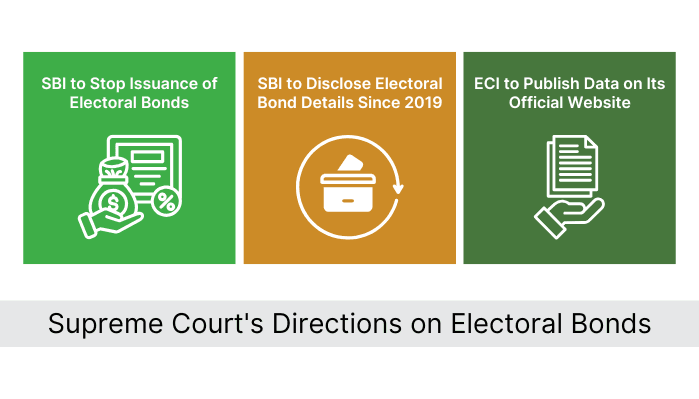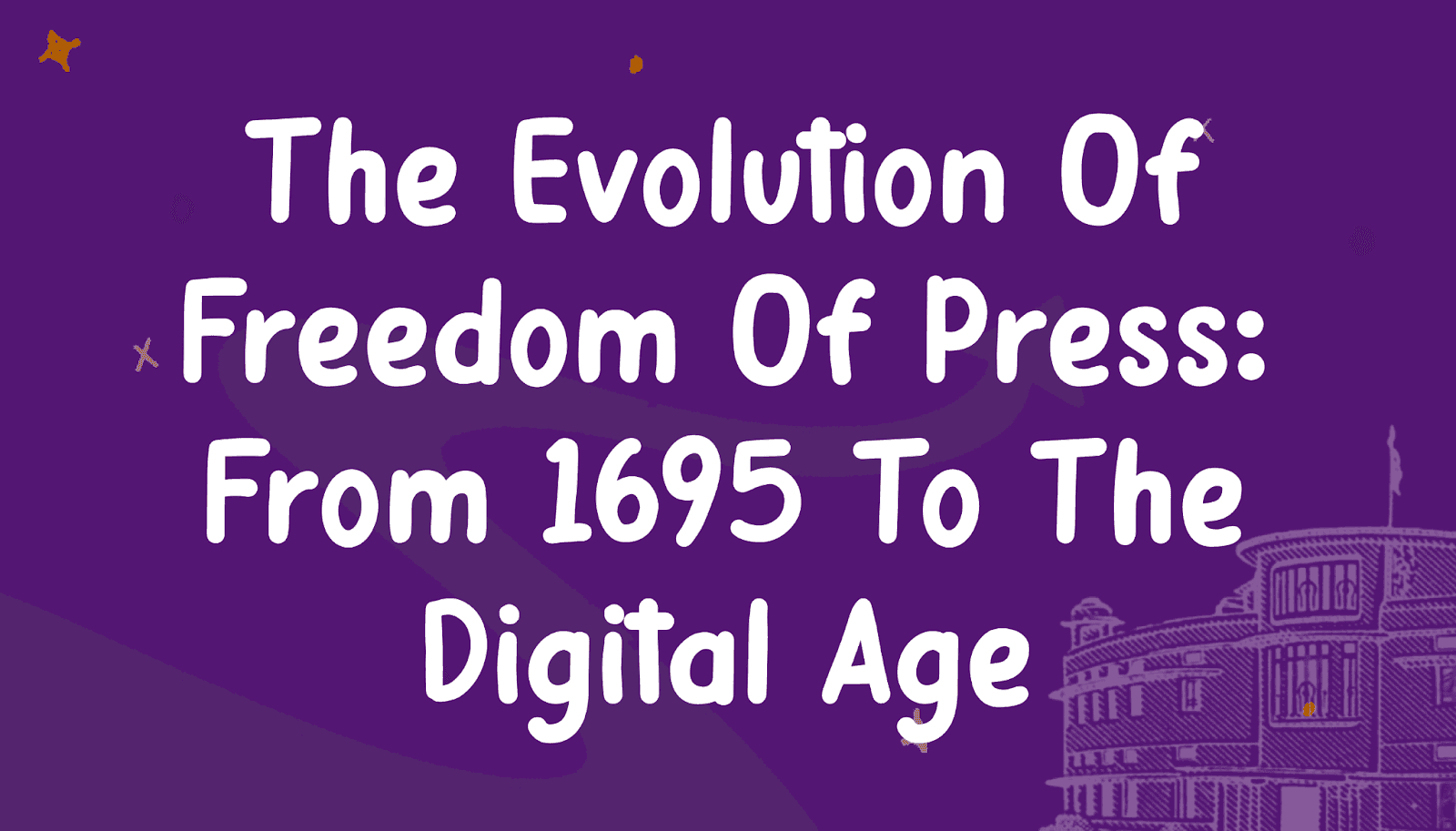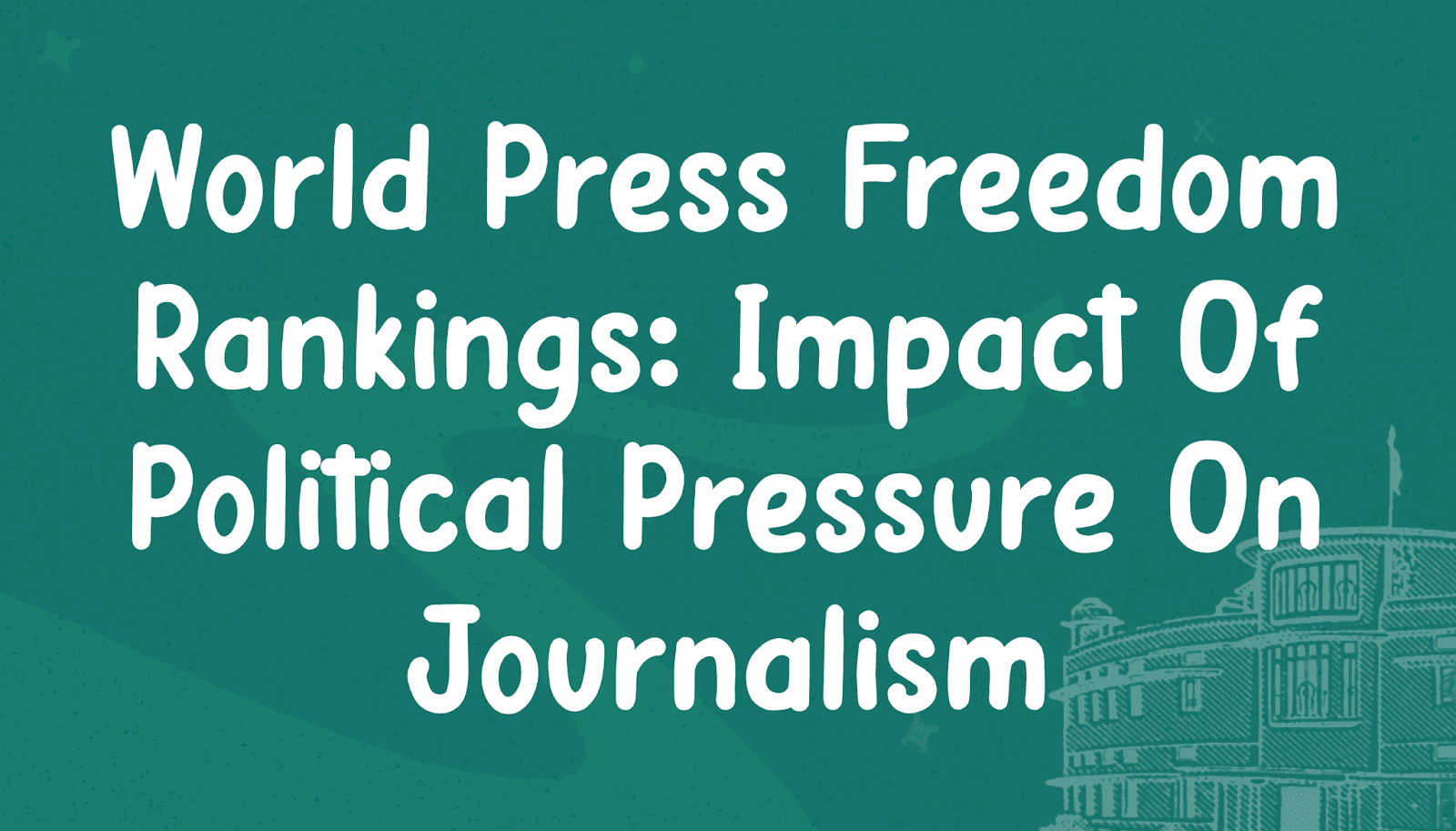Supreme Court's Verdict on Electoral Bonds Scheme: UPSC Notes
Apr, 2025
•4 min read
"The Electoral Bonds Scheme violates the right to information and undermines transparency in political funding." — Supreme Court of India
In a landmark judgment, the Supreme Court declared the Electoral Bonds Scheme unconstitutional, stating that it infringes upon citizens’ right to know about political donations. This verdict has far-reaching implications for electoral transparency, democracy, and political funding reforms in India.
Understanding the Electoral Bonds UPSC topic is crucial, as it highlights the intersection of law, governance, and ethical-political financing. Let’s begin understanding this crucial verdict.
What are Electoral Bonds?
 |
Electoral Bonds are financial instruments introduced by the Government of India in 2018 to facilitate transparent political funding while ensuring donor anonymity. These bonds allow individuals and corporate entities to contribute to political parties through the banking system without revealing their identities.
Features and Mechanisms of Electoral Bonds
1. Issued on a Non-Refundable Basis Through SBI
- Electoral Bonds are exclusively issued and redeemed at designated branches of the State Bank of India (SBI).
- They come in denominations of ₹1,000, ₹10,000, ₹1 lakh, ₹10 lakh, and ₹1 crore.
- Once purchased, they cannot be returned or transferred to another person.
2. Available to Indian Citizens and Indian-Incorporated Entities
- Only Indian citizens, companies, and organizations incorporated in India can purchase electoral bonds.
- Foreign entities and individuals are not eligible to buy these bonds.
3. Eligibility Limited to Political Parties with at Least 1% Vote Share
- Only political parties registered under the Representation of the People Act, 1951, and securing at least 1% of votes in the last general or state elections can receive electoral bond donations.
- This ensures that only recognized parties benefit from this funding mechanism.
4. Aim to Enhance Electoral Transparency Through Banking Channels
- Electoral bonds were introduced to reduce cash-based political donations and ensure that funds pass through formal banking channels.
- However, due to the donor anonymity clause, critics argue that the scheme promotes opaque political financing rather than true transparency.

Overview of the Supreme Court's Verdict
On February 15, 2024, a five-judge Constitution Bench led by Chief Justice D.Y. Chandrachud ruled that the electoral bonds scheme violated constitutional principles of transparency. The Court held that anonymous corporate funding to political parties increases the risk of quid pro quo corruption, affecting public trust in elections. The case was filed by the Association for Democratic Reforms (ADR) and others, challenging the legality of the Electoral Bonds Scheme.
- Petitioners argued that voter awareness and transparency in political funding are essential for a healthy democracy.
- The Court agreed, emphasizing that voters have a fundamental right to know the sources of party funding.
- The Supreme Court ruled that the right to information (RTI) about political funding is part of freedom of speech and expression under Article 19(1)(a).
- The scheme’s anonymity clause prevented voters from accessing information on which corporations and individuals were funding political parties, leading to imbalances in electoral competition.
- The Court directed the State Bank of India (SBI) to disclose all past electoral bond transactions to ensure public accountability.
Also cover: Lok Sabha passes 3 Criminal Law Amendment Bills | IPC, CrPC & Indian Evidence Act | UPSC CSE
Supreme Court's Directions on Electoral Bonds
 |
Following its landmark verdict striking down the Electoral Bonds Scheme, the Supreme Court issued specific directives to ensure transparency and accountability in political funding. These include:
1. SBI to Stop Issuance of Electoral Bonds
- The State Bank of India (SBI) has been ordered to immediately cease issuing any new bonds.
- This effectively halts the scheme and prevents further anonymous political donations.
2. SBI to Disclose Electoral Bond Details Since 2019
- The Supreme Court mandated SBI to provide a complete record of all electoral bonds purchased and encashed since April 12, 2019.
- This includes details of donors, political parties that received funds, and transaction amounts.
3. ECI to Publish Data on Its Official Website
- The Election Commission of India (ECI) has been directed to publicly release all disclosed data on its official website.
- This move ensures that voters and civil society can access information about political funding, promoting greater transparency in elections.
Reasons for Striking Down Electoral Bonds
- Anonymous Donations Infringe on the Right to Information: The scheme prevented voters from knowing who funded political parties, violating their right to information under Article 19(1)(a).
- Unlimited Corporate Donations Violate Fair Election Principles: The removal of donation limits allowed big corporations to influence political parties disproportionately, undermining fair elections.
- Concerns Over Donor Privacy and Influence-Based Contributions: The scheme enabled quid pro quo arrangements, where donors could expect political favors in return for their contributions.
- Violation of Transparency Norms and Electoral Reforms: Electoral reforms aim for greater accountability in political funding, but the scheme sidestepped these objectives by allowing opaque transactions.
- Foreign Influence and National Security Risks: The amendment to the Foreign Contribution (Regulation) Act (FCRA) allowed even foreign-controlled Indian companies to donate, raising concerns over external influence in elections.
- Unfair Advantage to the Ruling Party: Data from SBI disclosures revealed that the ruling party received over 50% of the total bonds issued, raising concerns over biased access to political funding.
- Potential for Money Laundering: The scheme lacked robust verification mechanisms, increasing the risk of black money being funneled through political donations.
By striking down the scheme, the Supreme Court reinforced the importance of transparency and fairness in India's electoral process.
Implications of the Supreme Court’s Verdict on Electoral Bonds
The Supreme Court’s verdict is a pivotal step toward clean and transparent election funding, ensuring that democracy serves the people, not just powerful donors. Here are the key implications:
1. Greater Transparency in Political Funding
- The verdict ensures that political donations are now subject to public scrutiny, strengthening accountability in electoral finance.
- The disclosure of past electoral bond transactions will provide insights into corporate-political relationships.
2. Increased Trust in Democratic Processes
- Voters can now make informed decisions based on transparent financial disclosures of political parties.
- It restores fair competition among political parties by preventing undue financial influence from big donors.
3. Potential Shift to Alternative Funding Mechanisms
The ruling may push the government to explore alternative transparent funding methods, such as:
- State funding of elections (government grants to political parties).
- Crowdfunding and small donor contributions to reduce corporate influence.
- Strengthening the Electoral Trust Scheme for cleaner political donations.
4. Legal and Policy Reforms on Political Donations
- The government may introduce new policies to regulate corporate and individual donations more transparently.
- Future reforms could enhance disclosure norms and place stricter checks on election funding.
5. Impact on Political Parties
- Parties heavily reliant on corporate funding may need to revise their financial strategies.
- Political entities will now face greater scrutiny from election commissions, opposition parties, and civil society.
Also prepare this key current affairs topic: Understanding the Implications of India's Uniform Civil Code

Rethinking Electoral Funding: The Path to Transparent Democracy
 |
"A well-functioning democracy must have transparency in political financing; otherwise, it risks being hijacked by vested interests." – Former Chief Justice of India
With the Electoral Bonds Scheme struck down, India now faces a crucial opportunity to reform its electoral funding system. To ensure transparency, fairness, and accountability, the country can adopt best practices from other democracies while crafting a model suited to its unique political landscape.
1. Implementing State-Funded Elections
Countries like Germany and Sweden have state-funded election models, where public money is allocated to political parties based on their vote share. This reduces dependency on corporate donations and ensures fair electoral competition. India can explore a partial state-funding model where public funds are used alongside small individual donations to support parties.
2. Strengthening the Electoral Trust System
In the UK and Canada, registered Electoral Trusts act as intermediaries between donors and political parties, ensuring anonymity while maintaining accountability. India has an Electoral Trusts Scheme, but it needs stricter regulations to prevent corporate influence and misuse.
3. Capping Corporate and Individual Donations
In the United States, corporate donations are restricted, and Political Action Committees (PACs) must disclose their funding sources. India can introduce a cap on corporate and individual donations to prevent a disproportionate influence of money in politics.
4. Mandatory Real-Time Disclosure of Donations
Countries like France and Australia have real-time political donation disclosure systems, ensuring that all contributions above a certain limit are publicly available. The Election Commission of India (ECI) should mandate a publicly accessible, real-time donation tracking system to promote voter awareness and financial transparency.
5. Encouraging Small Donors and Crowdfunding Models
In the US, candidates like Bernie Sanders and Barack Obama raised substantial campaign funds through small individual donations. India can encourage crowdfunding for political campaigns by offering tax incentives to small donors contributing below a certain threshold.
6. Strengthening the Role of the Election Commission
The ECI must be given more autonomy to audit party finances, investigate suspicious donations, and enforce strict penalties for non-compliance. A transparent digital platform under the ECI’s supervision can ensure efficient tracking and monitoring of political funding.
7. Introducing Transparent Digital Payment Systems
Countries like Japan and South Korea mandate all political donations to be made through traceable banking channels. India can adopt a strict digital payment-only system to prevent black money and cash-based political donations.
Also read: Good Governance Day 2024: Importance, History & Relevance for UPSC CSE Aspirants
To master directive words for UPSC Mains, read: Understanding Directive Words in the UPSC Mains Exam.
Conclusion
The Supreme Court’s verdict on electoral bonds marks a pivotal moment for India’s electoral transparency and democratic integrity. By striking down the scheme, the ruling reinforces the right to information and underscores the need for fair political funding reforms.
As India moves forward, adopting global best practices and ensuring transparent donation mechanisms will be crucial to restoring public trust in elections. For UPSC aspirants, understanding the implications of this judgment is essential for exam readiness and a broader grasp of governance and ethics.
Keep updating your Electoral Bonds UPSC notes with recent developments to stay ahead!
Take your UPSC Preparation to the Next Level with SuperKalam!

Meet SuperKalam! Your Super Mentor provides a comprehensive learning ecosystem, you can benefit from focused and disciplined preparation strategies.
Start Now—it's FREE and take advantage of personalized guidance to crack the UPSC with confidence and clarity.
Explore SuperKalam's Resources and set yourself on the path to success!


